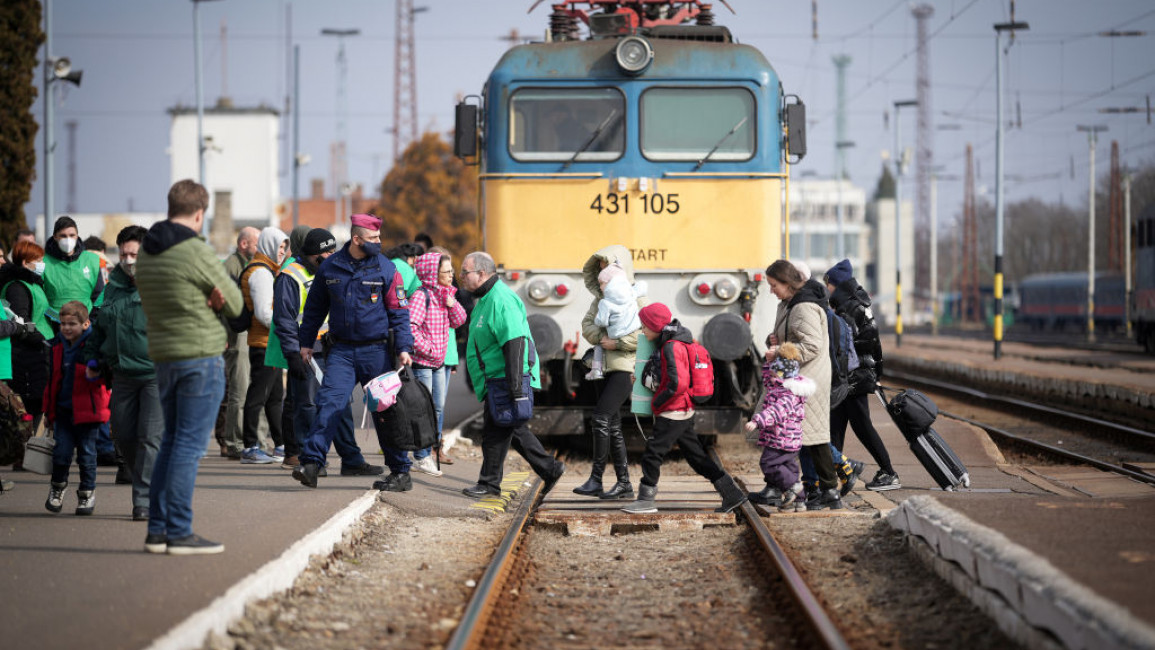EU agrees 'historic decision' to offer blanket protection to Ukraine refugees
The EU on Thursday agreed to approve temporary protection for refugees fleeing the invasion of Ukraine - so far numbered at one million - while also setting up a humanitarian hub in Romania.
The moves by the European Union came in parallel to its muscular sanctions on Russia imposed in successive waves over the course of the invasion, now in its eighth day.
EU interior ministers agreed in a Brussels meeting to activate a temporary protection mechanism drawn up two decades ago - in response to the wars in the former Yugoslavia - but never used.
European home affairs commissioner Ylva Johansson, who attended the meeting, tweeted that it was a "historic decision".
French Interior Minister Gerald Darmanin said: "The European Union will accord temporary protection to all those fleeing the war in Ukraine."
Darmanin's phrasing was significant. While most of those pouring out of Ukraine - mainly women and children because men of fighting age were compelled to stay - are Ukrainian, there were also many Indian students and other nationalities trapped when Russia invaded.
"The significance of this moment for Europe cannot be underestimated," the Oxfam charity said in a statement, calling it "a turning point for Europe".
It said the EU protection mechanism "offers a direct lifeline to people fleeing from danger in Ukraine" and now "all EU member states need to chip in and take responsibility".
A majority of member states was needed to adopt the protection mechanism. With the political agreement reached, it was expected to come into force within days, once the EU legislation is finalised.
Historic decision in #JHA right now; the EU will give temporary protection to those fleeing the war in 🇺🇦 . The EU stands united to save lives! @GDarmanin
— Ylva Johansson (@YlvaJohansson) March 3, 2022
Under a text submitted by the European Commission, refugees from Ukraine and their family members would receive a residence permit and the right to access work and education for an initial year, renewable every six months for a total of two years.
Currently, Ukrainians with passports bearing biometric data have only the right to visit the EU's Schengen area for up to three months, without the right to work, meaning they can already enter the EU.
German Interior Minister Nancy Faeser said as she arrived for the meeting that adopting the blanket protection for Ukraine refugees was "a paradigm shift" for the EU, which has long struggled to reform its asylum rules.
Hungary's government - which has the closest ties to Moscow of any EU country - said before its adoption that it was against blanket EU protection for Ukrainians.
As the interior ministers met, European Commission chief Ursula von der Leyen tweeted that the EU was also setting up a "humanitarian hub" in Romania, one of four EU countries bordering Ukraine.
"Protecting the people fleeing [Russian President Vladimir] Putin's bombs is not only an act of compassion in times of war. This is also our moral duty, as Europeans," she said.


